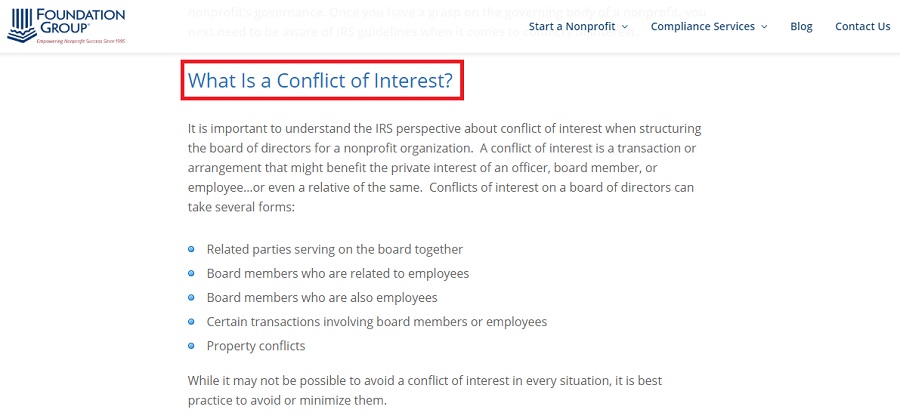The success of a non-profit depends directly on the strength and leadership of the board of directors, since they are the main group that aims to satisfy the needs of the organization.
In consequence, some questions arise: Is it positive to have related members on the board? Does it strengthen or weaken the policies? How can their participation be regulated?
In this article, we will answer these questions to explain the pros and cons of having family members on a non-profit board.
Bylaws regulations of a non-profit board
Contents
The boards of non-profits and private organizations have very different standards because of their purposes and their sources of funding. In non-profits, there is no legal regulation that explicitly prohibits family members from participating on the same board of directors.
However, even when there is no presence of a specific ban, history suggests that boards of directors should not be constituted of mostly members with family or business relationships.
Also, to maintain the stability, many organizations’ bylaws include a clause that addresses conflicts of interest among their members.
In this article from the Foundation Group, you will find more information about how to avoid conflicts between the board of directors: www.501c3.org/avoiding-conflicts-of-interest/.

This way, the organization ensures its independence when making decisions, allowing the participation of family members, but explicitly prohibiting its numerical dominance with the rest of the directors.
Importance of board independence

Maintaining independence is an essential aspect of any organization of this type.
Generally, the foundation’s policies are decided by consensus or vote; if board members are related, it will be tough for the decisions not to be influenced, consciously or unconsciously.
In fact, it has become a cautious practice for organizations founders to choose at least three unrelated board members.
Also, you should notify the IRS if there are family members and even business partners in the group.
IRS practices
To avoid internal transactions or misuse of the organization’s funds, the IRS requires that 51 percent of the organization’s members must be unrelated.
In addition, it has defined the limits of family, marital, and commercial relationships like this:
- Family relationships: It extends to father, mother, siblings, children, and grandparents. Aunts and cousins are exempted from this limitation.
- Marital relationships: It extends to the spouse, their son-in-law, daughter-in-law, father-in-law, or mother-in-law. Former spouses are not considered to be related to marriage.
- External business relationships: In a profit company, it extends to those partners who own more than 35 percent of it. Also, those who share a subordinate / superior relationship in an outside business company.
➡ ALSO, here is some valuable information on this subject: Non-profit funds for personal expenses
Disadvantages
There are no specific legal prohibitions for the participation of family members on a board of directors; however, we can mention several disadvantages regarding the financing of the organization.
For example, in Maryland, the mental health service cannot give state funds to non-profits that have boards made up mostly of family members.
An organization with only three people would be severely affected if 2 of them are related; this is another reason to establish family-participation clauses in the bylaws statutes, because after the board is complete, it is not correct to ask one of the members to resign.
Finally, a significant factor to take into account is the function and contribution of the members. If family-related members are productive, and they improve the functioning of the group, there is no reason to remove them.
On the other hand, if the members are not impartial, and do not contribute positively, the best option is to apply a rigid statute regarding their participation in the board.




